- Home
- Tripp Ellis
Wild Spring Page 2
Wild Spring Read online
Page 2
Chuck set a wad of bills on the counter.
Then the shooter squeezed the trigger twice in rapid succession. Two flashes erupted from the barrel, and a bullet pelted Chuck's chest. Another slammed into his face.
Chuck fell back, crashing into the shelving, knocking a few bottles off the wall before falling to the ground.
The shooter stuffed the pistol into his waistband, knelt down and collected the brass from the spent shell casings, and took a step toward the door. He almost forgot the cash. He stepped back and scooped it up. A few bills fluttered away as he tried to stuff the loot into his pockets before darting out of the store and running down the sidewalk.
The marker on the exit door indicated the attacker was around 6’.
It was an awkward robbery. But it told me a few things about the killer.
All robberies are awkward—at least in the beginning. It takes a few under your belt before you get the hang of it. Nerves are always a factor.
It wouldn't be unheard of for a criminal to rob a liquor store, shoot the owner, and run out before taking the cash because they were so scatterbrained. But this shooter had the presence of mind to collect the spent shell casings. This may not have been the shooter's first rodeo, but I felt confident saying this was early in his career.
Still, there was something odd about it.
The two shots were designed to kill. Not incapacitate. The shooter was under no immediate threat at the time. The murder wasn't necessary. Chuck didn't look like he was going for a gun.
The robber could have easily grabbed the cash, ran out, and Chuck would still be alive—a little lighter in the wallet, but still alive.
The shooter was either looking to kill somebody or, more specifically, he was there to kill Chuck.
I couldn't say for sure. Maybe he didn’t want to leave any witnesses. Some people just like to kill people. It's something they think about, fantasize about, anticipate. Maybe they want street cred. They want to make their bones. Maybe they believe taking another person's life will convey to them some sort of power. Who knows? But there is no shortage of those types out there.
I asked JD, “Are you thinking what I'm thinking?"
"This looks like a hit. The robbery is cover. Misdirection."
The fact we were both thinking the same thing told me we were on the right track.
From the video footage, there was nothing really identifiable about the thug. He wore blue jeans, a black long-sleeve T-shirt, and a black mask. Not much to go on. The shoes were some type of basketball shoes, but it was difficult to make out the brand.
"Now, all we need to do is figure out who wanted Chuck dead," JD said dryly, knowing it wouldn’t be easy.
4
"We may have a witness," Erickson said, poking his head into the back office.
That grabbed our attention.
The deputy continued, “He was taken to the ER with a gunshot wound. Guy’s name is Mark Anderson."
"Is he going to make it?" I asked.
Erickson shrugged.
We shuffled out of the office and made our way down the aisle, back to the counter. The forensics guys were documenting the blood splatter. Through a series of measurements, they'd be able to determine the exact angle of the bullets and re-create the scene on a computer. The visual displays would come in handy in a trial if the case got that far.
We left the liquor store, carefully stepping over the dried residue of soda. The curious crowd outside still gawked.
We plowed through the horde, hopped into the Porsche, and sped to the hospital—and when I say sped, I mean we mostly sat in traffic.
An illuminated sign read Emergency in bold white lettering against a crimson backdrop. JD pulled into the parking lot, and we dashed inside the trauma center. The automatic sliding doors parted, and I flashed my badge to the receptionist. "I'm looking for a trauma patient that was brought in with a GSW. Mark Anderson."
She pulled up his information. "He's being treated right now, but if you’ll have a seat, I'll have the doctor speak with you shortly."
We took a seat in the waiting area that was bathed in pale green fluorescent lighting. We tried not to sit next to anyone who coughed.
A flatscreen display mounted on the wall was tuned to a 24-hour news station. Children played with toys at the kiddie' table. There was all manner of battered and bruised patients waiting to be treated—young and old.
It was particularly crowded due to the season, mostly with drug and alcohol-related issues. A girl got drunk, fell down, and broke her wrist. One guy needed stitches in his brow from a bar fight. Another girl came in on a bad trip, thinking she was going to die. The triage nurse tried to figure out what she had ingested.
Dr. Parker emerged 40 minutes later, pushing through the double doors that led to the patient areas. He was dressed in teal scrubs with a cap and a surgical mask. By this point, we knew each other well. Unfortunately, JD and I were no strangers to the ER.
We greeted each other and exchanged pleasantries.
"He's going to be fine," Parker said. "The bullet grazed his chest and pierced his latissimus dorsi."
“Is he up for questions?" I asked.
“I’ll take you to him."
Dr. Parker led us past the security station, through the double doors, and down the hallway to Mark's room. He lay in bed, recovering from the procedure. A bag of IV fluids dripped into his arm. Vital signs were displayed on the monitor next to the bed. He’d been given medicine for the pain but seemed alert when we talked to him.
Mark was a big guy—short blond hair, blue eyes, thick and muscular. In his early 20s, he looked like he could have been a linebacker for a college football team.
I flashed my badge and made introductions.
Mark had a slight grin on his face. He seemed amused by the whole thing, and he was getting a lot of attention from the cute nurse. He had a hell of a story to tell about his Spring Break. He'd come to Coconut Key to party and have a good time. He saw a robbery in progress, chased down a bad guy, got shot, and lived to tell about it.
"I heard the two gunshots inside the liquor store,” he said. “Then this punk in a ski mask spills out of the store and takes off running. I don't know what got into me. I just chased after him. He ran down an alley, crossed over the next street, then darted through another alley. I was gaining on him when he aimed the pistol back at me, and more shots rang out. I took the hit, and it felt like somebody had shoved a hot poker into me." Mark shook his head. “That's when I stopped chasing. I figured running after a guy with a gun probably wasn't the smartest thing in the world."
"What can you tell me about the assailant?" I asked.
Mark attempted to shrug, but the movement hurt, and a grimace twisted on his face. He proceeded to describe the man we saw on the security video from the liquor store. Mark gave us the location of the alley where he was shot.
"I wish I could be more helpful," Mark said. “The guy looked at me when he took aim, but I can't remember if he had blue or brown eyes. Once I was hit, he disappeared around the corner, and that was it."
We collected his information, thanked him for his time, and wished him a speedy recovery.
We left the ER, climbed into Jack’s Porsche, and headed to the alley where Mark was shot. I called the forensics guys and updated them on the situation. They met us at the location and scoured the alley, looking for a spent shell casing.
The air in the alley was rank with the smell of rotting garbage. Scraps of paper scraped against the concrete with the breeze. There were multiple areas of dried vomit from Spring Breakers overindulging. The strong stench of stale urine permeated the air.
It wasn’t a nice place to spend any length of time.
We finally found a brass casing near several flattened sheets of brown cardboard that someone had been using as a makeshift mattress behind a dumpster. I felt sorry for the guy who called the place home.
The forensics guys snapped photos before collecting the evidence.<
br />
The 9mm casing once housed a 124-grain bullet.
We went back to the station, filled out after-action reports, and reviewed the footage from the liquor store a few more times with Sheriff Daniels and Denise. We huddled around her desk, watching on the flatscreen display.
The hectic office buzzed around us. Phones rang, and keyboards clattered. Rays of sun beamed through the blinds, cutting shafts of hazy air. Citizens filed stolen property reports, and suspects were processed. There were stale donuts on the counter next to the coffee maker.
"What do we know about Chuck?" I asked. "Who would want him dead?"
"You think this is more than a robbery?" Daniels asked.
JD and I nodded.
Denise's delicate fingers clacked against the keyboard. A moment later, Chuck Kennedy's information flashed on the display.
Chuck didn’t have much on his record—a speeding ticket and a few parking tickets. By all measures, an upstanding member of the community. He was married and lived in the upscale neighborhood of the Platinum Dunes Estates.
There was something concerning in his file.
"Looks like he's a prosecution witness in a robbery case," Denise said. “The liquor store was robbed three months ago. He filed a police report, and Mario Rivera is currently in the county lockup awaiting trial."
I lifted an intrigued eyebrow. “What do we know about Mario?"
With a few more keystrokes, his mug shot appeared on the screen.
5
Mario Rivera had a shaved head with a millimeter of brown stubble. He had a few gang tattoos on his face and a thin mustache that was little more than peach fuzz. There was a small patch below his lower lip. His brown, soulless eyes stared into the camera. Tattoos in script on his neck poked above his T-shirt collar. Mario was 21 years old and was looking at a lengthy prison stretch.
As the sole witness, Chuck's demise proved fortuitous for the young thug. The State would have no witness to testify against Mario in the armed robbery of the liquor store. It was only a matter of time before the charges were dropped and the perp released.
"He's got known gang affiliations," Denise said, continuing to read from Mario’s file. "He's got a brother, Luis. 19. Not currently incarcerated. But they both have a hell of a rap sheet.”
"Stacking up impressive credits at such a young age," JD said.
"Is there anything outstanding on Luis that we can pick him up for?" Daniels asked.
Denise shook her head. "Not at this time."
"What's the address for Luis?” I said. “I think we need to pay him a visit."
Denise brought the information front and center on the display. I squinted at the screen and typed the address into the notes app on my phone.
“Has Chuck’s next of kin been notified?" Daniels asked.
"Not yet," Denise said.
"Talk to the wife," Daniels said to me. “Then see if you can find Luis and bring him in for questioning."
“You got it, boss.”
Daniels gave me the side-eye. He hated it when I called him boss.
Deputy Tom Janik passed by with an anxious look on his face.
“What’s the word, Tom?” I asked.
“Any time now. I’m on standby.”
Tom’s wife, Cassidy, was pregnant and a new citizen was incoming. He was doing his best to manage the anticipation.
We left the station and cruised to the posh neighborhood of the Platinum Dunes—the land of perfect yards, swaying palm trees, clear pools, and expensive sport-utility vehicles.
The McMansions all had open floor plans, large windows, and access to private canals that were home to luxury yachts, sailboats, and other sporting watercraft.
We parked at the curb, hopped out, and strode the walkway to the front door. A large grey truck was parked in front. It had big, knobby tires and could handle any off-road excursion. A magnetic sticker on the door read: I Fix Anything.
I rang the video doorbell. Informing a loved one of a loss was never a pleasant experience, and I wasn’t looking forward to it.
A few moments later, a lovely voice filtered through the tiny speaker. She had a slight Russian accent. "Can I help you?"
I held my badge to the lens. "This is Deputy Wild with Coconut County. I'm looking for Mrs. Kennedy."
"Speaking."
"We’d like to talk to you for a moment."
"What's this about?"
I hesitated. "I hate to be the bearer of bad news, but I think this is better done face-to-face."
"Give me just a moment," she said.
The speaker crackled as it disconnected. A moment later, Mrs. Kennedy pulled open the front door with curious eyes.
She was not at all what I expected.
She slinked in the doorway, wearing a tiny bikini that accentuated her perfect form. Her short platinum blonde hair framed her sculpted face and crystal blue eyes. She had high cheekbones and an elegant jawline. Her plump, full lips were slick with gloss, and she had dark, smokey eye-shadow.
She was nothing short of stunning.
Nadia couldn’t have been more than 24. An intricate monochrome dragon tattoo adorned her right arm. "What seems to be the problem?"
I informed her of the unpleasant situation.
Nadia's face went pale, and her lips quivered. Her eyes welled. "What!? How?"
She cupped her hand over her mouth in shock as the gravity of the situation sunk in.
"There was an incident at the liquor store." I noticed another girl lingering in the foyer behind her—an equally gorgeous brunette wearing a red bikini.
"May we come inside?" I asked.
Nadia nodded and stepped aside.
We entered the foyer, and her friend rushed to Nadia's aid. She hugged Nadia as she broke down in tears. The friend escorted Nadia into the living room and sat her down on the couch, trying to comfort her.
There were large canvases of modern art on the wall. The furniture was clean and elegant. The design was minimal. The large windows allowed copious amounts of light into the living room, which had high vaulted ceilings.
It was a new home, but the kitchen was in the process of being remodeled. They had removed a few walls, making the space even more open. There was clear drop-cloth partitioning the living area from the section of the house that was being renovated to keep dust at bay. The smell of fresh paint permeated the air.
Sunlight sparkled off the pool outside, which was surrounded by lounge chairs. The muffled sound of music seeped in from outside, and I could see half-empty glasses of strawberry daiquiris near the lounge chairs. The girls had obviously been sunning themselves outside when we arrived.
Nadia sobbed for a few minutes, blotting her eyes with tissues. Her heavy mascara streamed down her cheeks, and her face reddened as she cried. The veins pulsed in her temples.
Her friend, Tatiana, frowned and kept an arm around Nadia.
When Nadia finally pulled herself together, she sniffled and said, “You’ll have to excuse the mess. My contractor is taking longer than expected."
"Isn’t that always the way," I said.
She gave a demoralized nod.
I figured the comment was an attempt at normalcy. A momentary thought diversion from the cold, hard reality that her husband wouldn't be coming home.
Someone entered through the back door by the kitchen. My eyes flicked to see a man in his late 20s. He wore a navy T-shirt and jeans that were covered with dust and debris. He was a good-looking guy, with brown hair, brown eyes, and an athletic frame.
"That's Landon,” Nadia said. “The contractor.”
He glanced at us briefly and waved. He noticed Nadia's distress, and his smile turned to a frown. "Is everything okay?"
Nadia teared up again and shook her head.
Landon's eyes rounded when she told him the news. His face went long. "My God, that's terrible! I'm so sorry. Is there anything I can do?"
He stepped closer, then hesitated, not sure of how much concern to express or what
was appropriate for a hired hand.
Nadia shook her head. "Thank you, though.”
Landon paused. "Maybe I should give you some privacy?”
"No. That's okay. You can finish what you're doing,” Nadia said.
Landon hesitated. "Okay. I'll try to finish up and get out of your hair. If you need anything, just let me know.”
He disappeared beyond the hanging sheets of drop-cloth and went back to work, his blurry form somewhat visible through the milky plastic.
"How long has he been here?" I asked.
"He's been working on the renovations for a few months," Nadia whispered.
"I mean today."
“All morning. The fumes were getting intense, so I called Tatiana, and we spent the day poolside." She wiped her still seeping eyes. "I just can't believe Chuck’s gone."
She sobbed again.
I looked at Tatiana. “How long have you been here?”
“I guess since around 10:30 AM.”
My attention turned back to Nadia. "Can you think of anyone who may have wanted to kill Chuck?" I asked.
Her brow knitted with confusion. "I thought you said he was shot during a robbery?”
"He was. But we're not ruling out the possibility of an assassination."
"An assassination?" A wave of realization washed over her. “Have you looked into the guy who robbed the liquor store? Chuck received a few death threats about the case. They were trying to intimidate him. They didn’t want him to testify. Chuck dismissed it as idle threats, but…”
She teared up and sobbed again—her chest jerking.
“We’re pursuing that avenue,” I assured. “How long had you and Chuck been married?”
6
“Coming up on two years," Nadia said. She sniffled. “I've never been happier."
It was all she could do to hold it together. Her tears seemed genuine.
Tatiana frowned and patted her back.
"How did you two meet?" I asked.

 Wild Honor
Wild Honor Wild Gold
Wild Gold Wild Secret
Wild Secret Wild Killer
Wild Killer Wild Heart
Wild Heart Wild Crown
Wild Crown Wild L.A.
Wild L.A.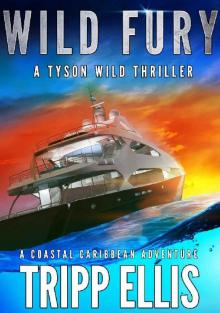 Wild Fury
Wild Fury Wild Surge
Wild Surge Wild Riviera
Wild Riviera Wild Tide
Wild Tide Wild Rage
Wild Rage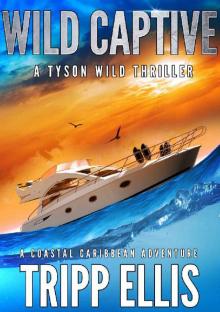 Wild Captive
Wild Captive Wild Spring
Wild Spring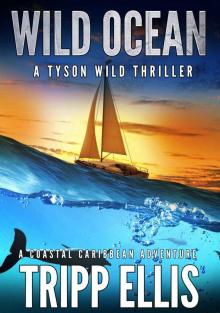 Wild Ocean
Wild Ocean Wild Break
Wild Break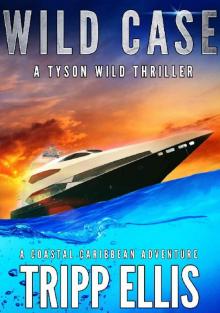 Wild Case
Wild Case Wild Venom: A Coastal Caribbean Adventure (Tyson Wild Thriller Book 31)
Wild Venom: A Coastal Caribbean Adventure (Tyson Wild Thriller Book 31) The Zero Code (Max Mars Book 3)
The Zero Code (Max Mars Book 3) Wild Justice
Wild Justice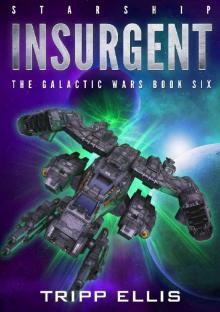 Starship Insurgent (The Galactic Wars Book 6)
Starship Insurgent (The Galactic Wars Book 6)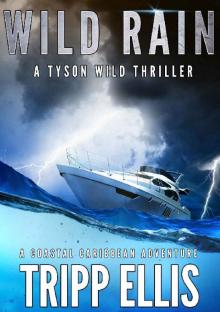 Wild Rain
Wild Rain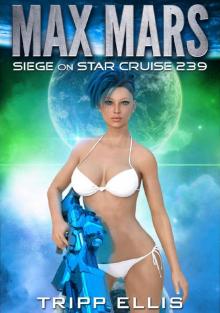 Siege on Star Cruise 239
Siege on Star Cruise 239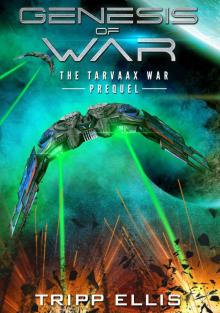 Genesis of War
Genesis of War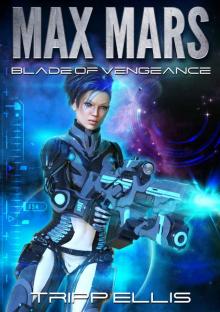 Blade of Vengeance (Max Mars Book 2)
Blade of Vengeance (Max Mars Book 2) Starship Revenant (The Galactic Wars Book 3)
Starship Revenant (The Galactic Wars Book 3) Starship Valor (The Galactic Wars Book 5)
Starship Valor (The Galactic Wars Book 5)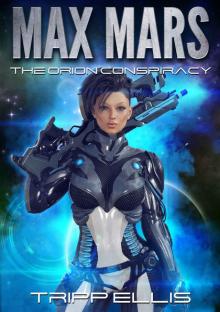 The Orion Conspiracy (Max Mars Book 1)
The Orion Conspiracy (Max Mars Book 1)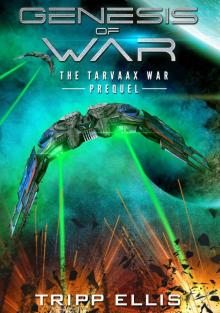 Genesis of War: A Military Sci-Fi Novella (The Tarvaax War Book 3)
Genesis of War: A Military Sci-Fi Novella (The Tarvaax War Book 3)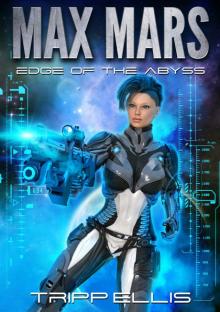 Edge of the Abyss: A Space Opera Novella (Max Mars Book 4)
Edge of the Abyss: A Space Opera Novella (Max Mars Book 4)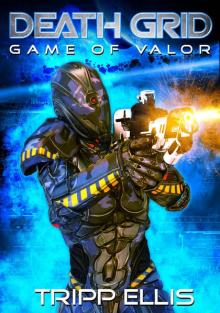 Death Grid_Game of Valor
Death Grid_Game of Valor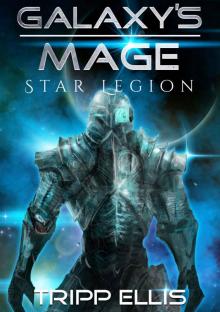 Star Legion
Star Legion Starship Exodus (The Galactic Wars Book 7)
Starship Exodus (The Galactic Wars Book 7) Starship Desolation
Starship Desolation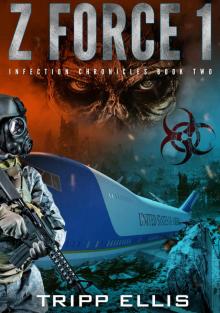 Z Force 1: A Post-Apocalyptic Thriller (Infection Chronicles Book 2)
Z Force 1: A Post-Apocalyptic Thriller (Infection Chronicles Book 2)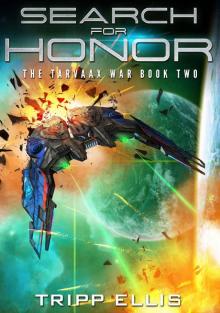 Search for Honor (The Tarvaax War Book 2)
Search for Honor (The Tarvaax War Book 2) Valkyrie (The Galactic Empire Book 1)
Valkyrie (The Galactic Empire Book 1)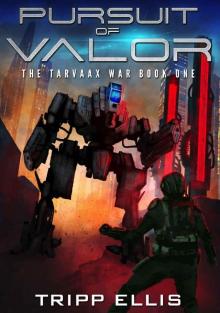 Pursuit of Valor (The Tarvaax War Book 1)
Pursuit of Valor (The Tarvaax War Book 1)